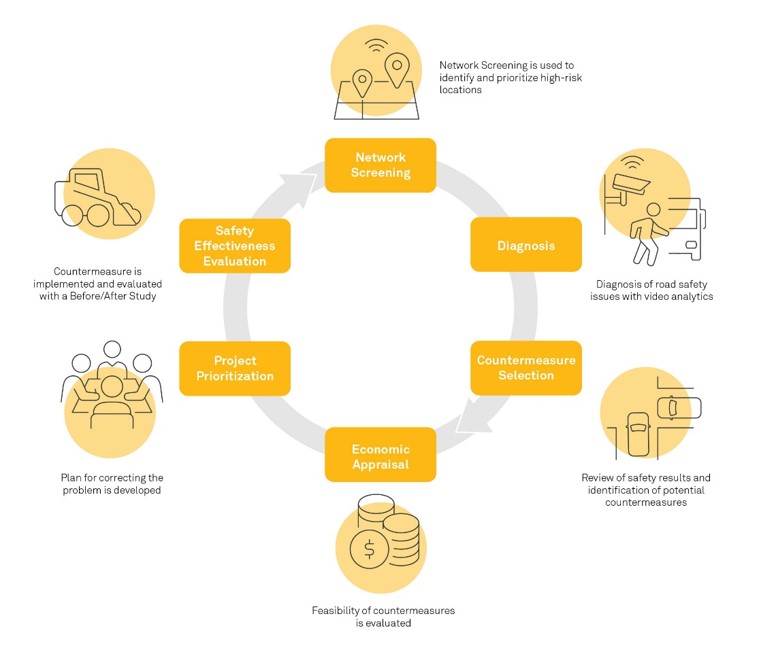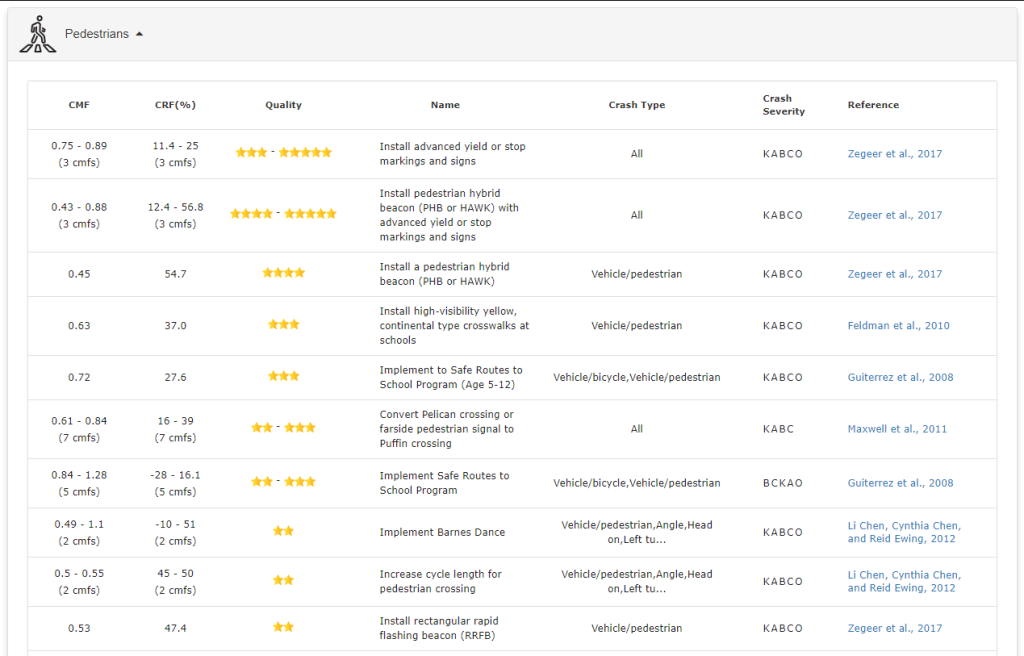
Author: Julie Levy, B.Eng.
Project Delivery Manager
Transoft Solutions recently released a new feature that allows BriskLUMINA users to narrow down possible remedial treatments or countermeasures using automated filtering and CMFs. But how does it work? And what is a CMF, anyways?
A Crash Modification Factor (CMF) estimates a safety countermeasure’s ability to reduce crashes and crash severity. It is the value of the ratio of the number of crashes expected to occur with countermeasure implementation divided by the number of crashes occurring without countermeasure implementation in a given period. CMFs are developed by researchers who perform safety effectiveness studies of treatments or countermeasures. The CMF clearinghouse is a good place to learn more about how to use CMFs. The more precise the research, the more reliable the CMF estimate. In addition, clear documentation of researchers’ work such as the methodology used, and site characteristic details allows transportation practitioners to more accurately assess in which situations it is appropriate to apply a certain CMF.

Up until now, the BriskLUMINA solution has provided safety diagnosis, but this new countermeasure selection feature will help our clients with a critical part of the road safety management process: putting safety diagnosis findings into effect in order to increase road user safety.
The Six-Step Process to Selecting Countermeasures using CMFs
In general, there are six steps to selecting a countermeasure using CMFs:
Step 1: In this first step, the BriskLUMINA platform automatically identifies potential countermeasures that would address the types of crashes occurring at the site.
Step 2: Next, all relevant CMFs are identified for each perspective countermeasure.
Step 3: BriskLUMINA’s new Countermeasures feature then filters the list of CMFs to prioritize individual ones based on their relevance to the project. Using site characteristics like the type of traffic control, site speed limit, road division types for the major and minor street, urban density, number of approaches, and street types, the platform can automatically and efficiently filter and remove any CMFs that are not relevant to the site. In this step, physical, economic, and political factors can also be considered by the user in order to further filter the list of CMFs. CMFs can also be sorted based on their rating.
Step 4: In this step and based on the filtering performed in step 3, a single CMF is selected for each countermeasure.
Step 5: Once the CMF value is selected for the countermeasure, the expected number of crashes after countermeasure implementation can be calculated to compute the theoretical crash reductions that can be achieved by implementing a given countermeasure. This can be calculated for each countermeasure of interest.
Step 6: Finally, the crash reductions calculated for all countermeasures identified can be compared and used to select an appropriate countermeasure for each specific location.

You may be asking yourself, given that countermeasure selection is now an automated feature on the BriskLUMINA Safety Dashboard, do practitioners still need input from an engineering consultant in order to get a final recommendation for the study site?
The answer is yes. Transoft is a technology firm providing the tools to accelerate the search for CMFs and to narrow down potential treatments based on the meta data and outputs gathered from the solution’s diagnostics. There are limitations to fully automating the step-by-step approach to using CMFs. We therefore strongly recommend a transportation engineer be retained to evaluate all possible countermeasure treatments and to provide a final professional recommendation.
It is our goal to improve the logic to help identify, select, and narrow down the list of potential countermeasures. We will do this on an ongoing basis as we gain insight into how our clients use the feature, as we add more metadata, and as the type of diagnostic data that we have access to increases. For the time being, the feature aims to be more exhaustive rather than brief because we don’t want to necessarily remove countermeasures that could have been good choices, due to lack of information. The system will evolve and become more intelligent over time.